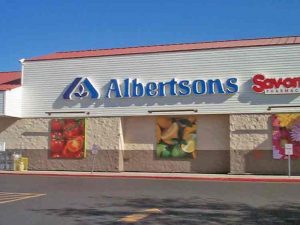On October 14, Kroger announced that it had agreed to a $24.6 billion merger with Albertsons in which Kroger would buy all of Albertsons’ outstanding stock.
However, on November 1, Washington state Attorney General Bob Ferguson filed a lawsuit attempting to block Albertsons Companies Inc. from issuing a $4 billion payout to its shareholders until state and federal antitrust officials have reviewed the merger. Ferguson accuses Kroger and Albertsons of violating state antitrust laws and the Consumer Protection Act.
The pair of grocery titans account for an overwhelming majority of grocery stores in the state. Albertsons owns both Safeway and Haggen; combined, Albertsons, Safeway, and Haggen own 216 stores in Washington. Kroger, meanwhile, owns Fred Meyer and QFC stores and has 114 stores across the state.
The merger includes a special dividend of up to $4 billion — or $6.85 per share — that Albertsons was planning to pay to its shareholders on November 7.
However, the Securities and Exchange Commission (SEC) says the dividend is more than the amount of cash Albertsons has on hand.
The Washington State Office of the Attorney General said that Albertsons planned to make the payment with $2.5 billion in cash, with the remainder borrowed elsewhere.
Albertsons said the special divided was not contingent on its merger with Kroger and was simply the means by which it would independently execute its longstanding capital return strategy.
Ferguson filed the lawsuit after a bipartisan group of six AGs from around the country urged Albertsons to delay the dividend until after a thorough review of the merger had taken place, and Albertsons declined.
In a press release, Ferguson claimed that “paying out $4 billion before regulators can do their job and review the proposed merger will weaken Albertsons’ ability to continue business operations and compete.”
Ferguson believes that a lack of cash means Albertsons could struggle to keep up with inventory orders, which in turn would result in empty shelves and fewer hours worked by employees. It could even sap Albertsons’ ability to keep its stores open during the years it likely would take to complete the merger.
“The allegation that this dividend will somehow hinder our ability to compete in the marketplace is . . . meritless,” a spokesperson for Albertsons Companies contended. “Given our financial strength and positive business outlook, we are confident that we will maintain our strong financial position as we work toward the closing of the merger.”
Ferguson, however, remained doubtful, believing Albertsons intended with the special dividend payment to decrease its competitiveness in order to strengthen its argument for the necessity of the merger. “Free enterprise is built on companies competing, and that competition benefits consumers,” Ferguson said. “Corporations proposing a merger cannot sabotage their ability to compete while that merger is under review.”






















